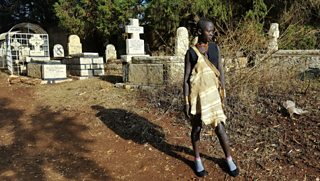Production trainee Tulasi Das on her trip to Ethiopia with the Natural History Unit
Tulasi Das
Production Trainee
Tagged with:
It all started when the production trainee scheme shipped me off to the Natural History Unit in Bristol. I was joining a series called Tribes, Predators and Me. The production office was wonderfully welcoming. They gave me the tools to do the work and guided me throughout the process. After a month I was writing a script for one of the episodes! Sure, it went through a dozen more changes after that, but fact of the matter is that I jumped that initial hurdle.
Soon I was researching an episode about hyenas. The PD (producer-director) asked me to research the Omo valley in Ethiopia, one of the most culturally diverse places on earth. Hyenas are a frequent problem for the many people living there as they steal the cattle the locals depend on.
I found a number of ethnic groups that might work for the film, including one so unknown that only three anthropologists seem to have ever studied them. Their selling point? Every June the bachelors have a fattest man contest whereupon the fattest becomes the most eligible of all.
The question of whether or not I would go on the shoot itself continued to loom but it was so much fun helping the producers put together the story that I tried to content myself with that. I think we all know I failed quite spectacularly at that - but in the end I think my obvious desperation was a selling point: three weeks before departure I heard was going on the shoot.
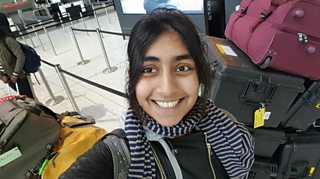
Those weeks were a blur of rabies shots, research and a leaden dread upon my realising that the researcher wouldn’t be coming with us. Her absence meant that much more of the shoot was resting on my shoulders.
One of the researcher’s most important tasks on location is offloading the rushes - to make sure that everybody’s hard work doesn’t disappear. The filming trip would be my first time doing it outside of training. The edit assistant was my salvation as he showed me how to do it and ensured I could settle in without freaking out. Without him I’m sure I would’ve given up on TV and joined the locals.
Ethiopia was incredible. Who would have thought that I could go from living with my mum in Holland to filming a Bodi woman undergo scarification in two years? I’m sorry, but that is just absurd.
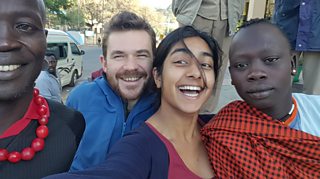
It wasn’t all sunshine, in reality or metaphorically. There were torrential storms and the heat hit 49 degrees at one point. Most days were spent conducting translations: the translator would tell me what someone said and I would note it down in the software along with the correct time codes. It was hot and dusty and we had one toilet that steadily accumulated everyone’s waste. But mostly it was spectacular.
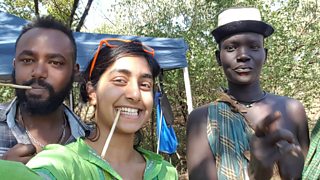
Brushing teeth with the locals!
I got to talk to the locals and figure out what they knew about hyenas; watch the rest of the crew shoot a scene; watch that footage in the rushes and think about what else we needed for the film. I soaked up every bit of information I could. There are a lot of quirks and nuances you notice on the ground that don’t show up in research, however thorough.
For instance, Bodi women are free to sleep with many boyfriends before marriage without any stigma attached - which I took as a strong feminist policy. Was this the feminist utopia I had been searching for? Not quite: further investigation revealed there is still a lot of inequality in different forms.
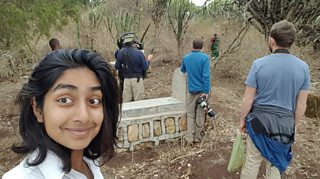
Quite possibly my favourite part of the trip was when I shot a film about Bodi fashion for the programme website. A local woman whom I’d befriended, Thorok T’onui, put on local make-up and scarified herself while my camera whirred.
Ethiopia was fantastic as a country and as a shoot. Being around seasoned professionals and just getting on and doing the work made me a much better researcher. It was an experience of a lifetime and I learned a lot - chief among them a lot of words with no practical application in the rest of my life.
Tumo ke tonomi! (Thank you.)
